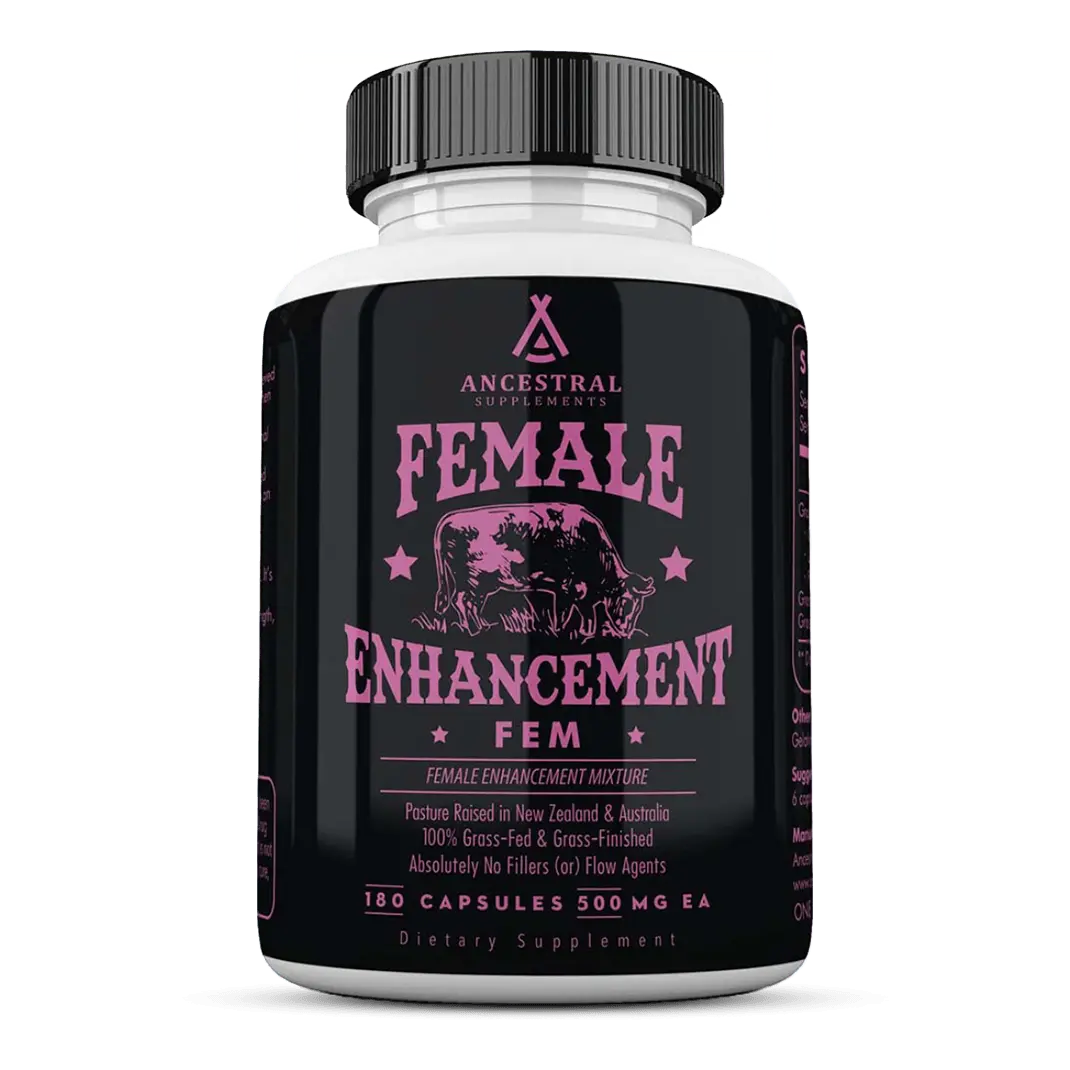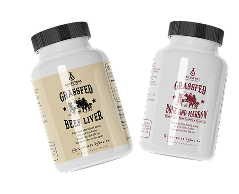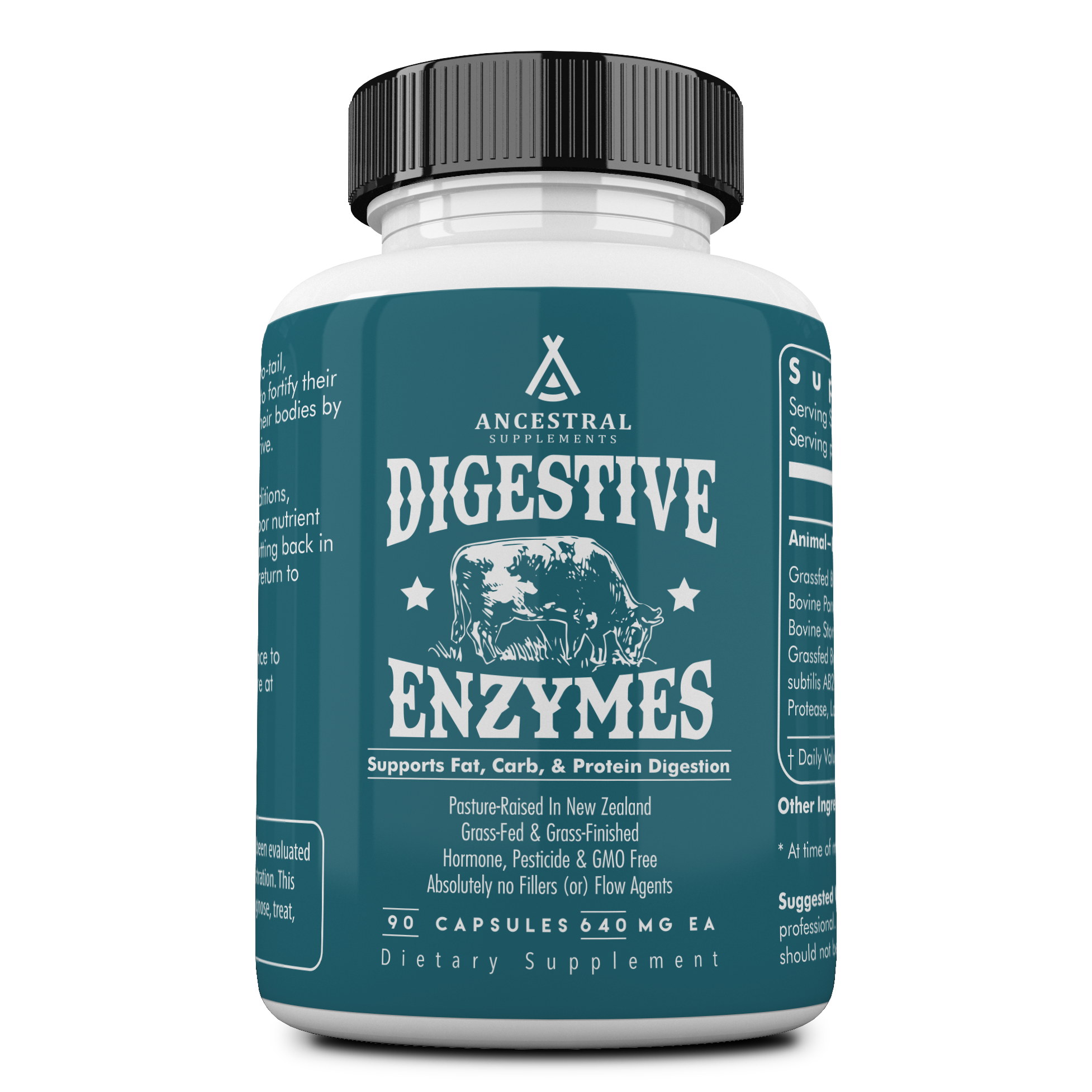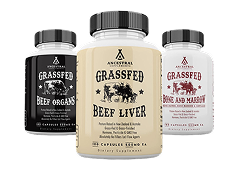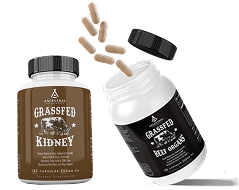4 Key Health Benefits of Beef Organ Meats

Organ meats, also known as offal, have long been a staple in traditional diets across the globe due to their dense nutrient content and many health benefits. For example, indigenous groups like the Native Americans and the Maasai of East Africa prioritized organs like liver and heart, which were often eaten raw immediately after a hunt. Traditional Chinese Medicine and Ayurveda also emphasize the health benefits of organs for their supposed energetic and therapeutic properties.
In today’s sustainability-focused world, "nose-to-tail eating" is gaining popularity once again. This approach minimizes waste and respects the animal, including cattle, by utilizing all of its parts, not just the muscle meats.
In this article, we'll look closely at the benefits of beef organ meats in particular—including the nutritional profiles of different types of beef organs like the liver, kidneys, brain, and heart—as well as practical ways to incorporate these organs into your diet and supplement routine.
What Are Beef Organs?
Beef organs (or offal) refer to the internal organs and entrails of cattle. These include liver, heart, kidneys, brain, tongue, adrenals, spleen, sweetbreads (which encompass the thymus and pancreas), and others.
The most commonly consumed beef organ meats include:
-
Liver: Known as “nature’s multivitamin” and especially high in vitamin A, B12, vitamin D, iron, and zinc
-
Heart: Appreciated for its muscular texture and nutrient profile
-
Kidneys: Valued for their flavor and health benefits
-
Tongue and brain: Considered delicacies in many cultures
-
Sweetbreads: Highly prized for their tender, creamy texture
Nutritional Profile of Beef Organs
Here's an overview of beef organ meat nutrition facts, based on the specific type:
Beef Liver
-
High vitamin A content: Beef liver benefits include being an excellent source of vitamin A, which supports vision, immune function, and skin health.
-
Rich in B vitamins: It's rich in B vitamins, particularly B12, which is crucial for neurological function, energy, and blood formation.
-
Provides iron and copper: Liver provides heme iron, which is the most bioavailable form of iron, and copper, a mineral that's essential for blood vessel and nerve health.
-
Good source of protein: It's a source of high-quality protein that supports muscle repair and growth, as well as cognitive function.
Beef Heart
-
Rich CoQ10 concentration: Beef heart health benefits include being rich in CoQ10, which is vital for energy production and heart health.
-
High in iron: It contains a significant amount of iron, promoting oxygen transport in the blood.
-
Good source of B vitamins: Heart is especially high in B vitamins like B12, niacin, and thiamine.
-
Complete amino acid profile: It includes all essential amino acids, making it a complete protein source that's helpful for muscle maintenance and cognitive health.
Beef Kidney
-
High in selenium: Kidney is very high in selenium, which plays a critical role in metabolism and antioxidant defense.
-
High B12 levels: It's rich in vitamin B12, supporting red blood cell production and brain health.
-
Balanced amino acids: It provides high-quality protein with a balance of essential amino acids.
-
Rich mineral content: It's high in minerals such as iron, phosphorus, and zinc.
Other Beef Organs (Tongue, Brain, Thyroid, Adrenal, Sweetbreads)
Each beef organ offers distinct nutrients and has unique advantages; for example:
-
Beef brain is rich in omega-3 fatty acids, choline, and cholesterol, which is important for cell structure and function.
-
Beef thyroid provides T1, T2, T3, and T4, which can be beneficial for managing both underactive and overactive thyroid function, as well as proteins, cofactors, and enzymes to elevate mood and mental clarity.
-
Beef spleen helps to support healthy iron levels, blood health, and immune system modulation.
-
Beef adrenal is rich in nutrients that support adrenal function by assisting in the production of crucial hormones like adrenaline and cortisol, which regulate stress response and metabolism.
-
Sweetbreads (which refers to the thymus and pancreas) are high in hormones and various enzymes that support digestion and cellular repair. Sweetbreads are also packed with protein, making them a nourishing addition to any diet.
-
Beef tongue is high in fat and connective tissue, supporting joint health.
4 Key Health Benefits of Beef Organs
As you can see, beef organs are packed with essential vitamins, minerals, and unique bioactive compounds that can help enhance physical health, boost energy levels, and support various bodily functions. These nutrients are not found in high amounts in commonly consumed cuts of meat; therefore getting them from organ meats has advantages.
Here's more about the many benefits of beef organs:
1. Improved Energy and Athletic Performance
Beef organs are abundant in heme iron, which is readily absorbed and utilized by the body. This type of iron is useful for supporting athletic performance by boosting oxygen delivery to tissues, which can help enhance strength during physical activities.
Coenzyme Q10 (CoQ10) is also found in high concentrations in organ meats, especially in the heart. It's involved in energy production within cells, making it important for the maintenance of high energy levels and exercise performance and recovery.
Additionally, organ meats are rich in B vitamins, which are crucial in helping the body convert dietary energy into ATP (adenosine triphosphate), the "energy currency" of cells. This process helps to support healthy energy levels, muscular strength, and endurance.
2. Enhanced Brain Function
DHA and other omega-3 fatty acids, prevalent in beef brain tissue, are critical for maintaining the integrity of brain cells. These nutrients support the overall structure and function of the brain, contributing to better cognitive abilities and neurological health.
Vitamin B12 is another nutrient abundant in beef liver and other organ meats. It is vital for cognitive health and functioning, as it helps maintain nerve cells and supports overall brain health. Maintaining healthy levels of vitamin B12 is also key to preventing cognitive decline associated with vitamin B12 deficiency.
Finally, liver is high in choline, a nutrient involved in synthesizing acetylcholine, a neurotransmitter that supports memory and learning. Adequate choline intake is associated with enhanced memory and cognitive function.
3. Immune System Support
Vitamin A in organ meats helps maintain systemic immune health and regulates immune responses.
Zinc and selenium are also found in beef organ meats like kidney and liver and help to bolster immune defenses. These minerals have antioxidant effects and can help support the immune system's ability to ward off inflammation, oxidative stress, and responses to pathogens.
4. Hormone Health
Organ meats provide precursors for hormone synthesis, including specific amino acids and fatty acids that allow the body to make a variety of hormones. These nutrients also support the function of glands such as the pancreas and adrenal glands, which are crucial for hormone production and regulation.
Beef organ meats are also rich in nutrients that support thyroid health and thyroid hormone production, including selenium, zinc, and iodine. These elements help enhance metabolism and maintain energy levels.
Finally, the nutrient density of organ meats supports various aspects of reproductive health and functions, such as by promoting overall metabolic health and hormonal balance.
How to Include Beef Organs in Your Diet
Now that you know about the many reasons to eat beef organs, let's talk about how to eat organ meats and make them a regular part of your diet.
Beef organs can be grilled, fried, or slow-cooked to enhance their flavor and tenderness.
Try adding them to dishes like stews, soups, or pâtés to help make them more palatable for those who are new to eating offal or who don't naturally love the taste. They can also be mixed with ground beef and other types of meat to make them more palatable.
Organ Meat Recipe Ideas for Beginners
If you're new to eating organ meats, try these recipes, which are tasty and beginner-friendly:
-
Liver Pâté: This creamy spread is not only simple to make but also blends liver with ingredients like onions, garlic, and herbs, enhancing its flavor and making it a perfect complement to crackers or toasted bread.
-
Heart Stew: In addition to slow-cooked heart, this stew incorporates a variety of root vegetables like carrots and potatoes, along with aromatic herbs such as thyme and bay leaves, making it a filling and flavorful comfort dish.
-
Kidney Pie: This savory pie combines kidney and beef with rich gravy, encased in a flaky, buttery pastry crust, often accompanied by diced onions and a hint of Worcestershire sauce to deepen the umami taste.
Beef Organ Supplement Options
If you prefer to consume beef organ supplements over cooking and eating fresh organ meats, consider desiccated organ supplements. Supplements are a convenient way to consume a wide range of organ meats nutrients—all without needing to cook and actually eat them. They're made of dried organ meats, typically taken in capsule form, making it super simple to take them any time of day.
Consider these beef organ meat supplements to reap the same health benefits as whole organ meats:
-
Grass-Fed Beef Organs (made with 100% pure bovine liver, heart, kidney, pancreas, and spleen)
Potential Concerns and Considerations
Opt for grass-fed organ meats as they tend to have higher nutrient content and are more likely to be free from added hormones and antibiotics. Supplements made from grass-fed, pasture-raised animals without any unnecessary fillers or additives ensure the highest quality and safety.
Recommended Consumption Frequency
Follow dosage recommendations for the specific type of beef organ supplement that you're taking, since dosages can vary by type. As an example, our Grass-Fed Beef Organ blend can be taken in dosage of six capsules per day, which provides plenty of vitamins, proteins, peptides, enzymes, and cofactors.
Conclusion
Beef organ meats offer a powerhouse of nutrients such as vitamin A, iron, zinc, B vitamins, and selenium that can support a range of health functions from brain activity to immune system resilience. Integrating beef organ meats like liver, heart, kidney, and brain into your diet, whether in fresh or supplement form, is a great way to boost your overall nutrient intake and support health, happiness, and vitality.

